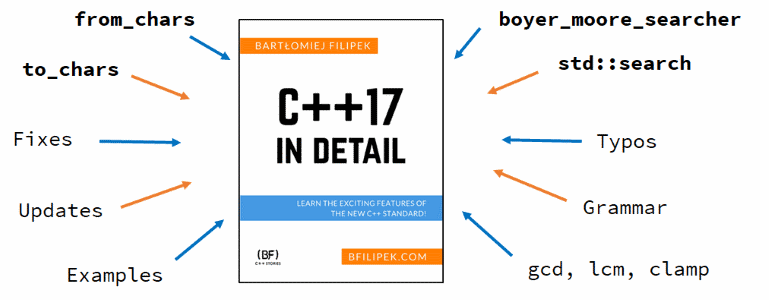Conversions, Searchers and C++17 In Detail Updates -- Bartlomiej Filipek

C++17 In Detail Book Update!
Conversions, Searchers and C++17 In Detail Updates
by Bartlomiej Filipek
From the article:
I’m happy to announce that I updated the book! “C++17 In Detail” grew by 31 pages (up to 250), includes two new chapters and lots of “bug” fixes and better explanations.
See the 2 new chapters about low-level String Conversion Routines and Searchers.

 Conferences, proposals, and learning, O my!
Conferences, proposals, and learning, O my! ACCU’s Overload journal of October 2018 is out. It contains the following C++ related articles.
ACCU’s Overload journal of October 2018 is out. It contains the following C++ related articles.